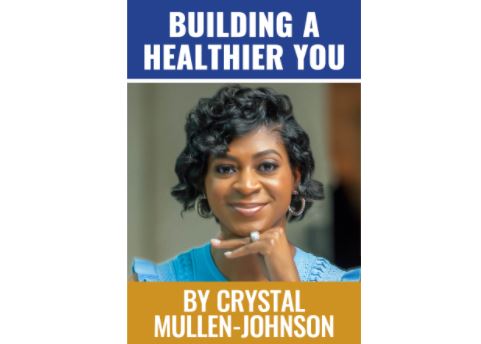By Crystal Mullen-Johnson
Who would have thought we would be battling a new variant of COVID-19 in the New Year? While travel plans were scheduled and plans to celebrate the new year were underway, thousands of people were testing positive for COVID-19 or had been exposed. Life was beginning to feel normal and here comes Omicron – the new COVID-19 variant. The idea of getting back to normal is what many hoped for but has not become the reality of what has happened.
Not only are we faced with the reality of living amid a global pandemic, but also a mental health crisis that is life altering. Constant change, loss, and fear are impacting many people’s mental health. The psychological consequences of COVID-19 may cause stress, grief, fear, anxiety, depression, and increased risk of suicide. The decline in people’s mental health, can make it difficult to function mentally or adjust to life during this trying time. Some have reached their breaking point and feel hopeless. Many are triggered by reminders of their losses when hearing of the rising numbers of COVID-19 cases and reported deaths.
With the increased risk of mental health and psychological problems, it is important to prioritize your mental health. African Americans disproportionately suffer from preventable health problems. Being strong and ignoring your problems is consequential and often causes long term effects.
One’s mental health impacts their emotional response to stress, their thoughts, and how they respond to situations. Therefore, it is critical people to pay attention to how they cope with life challenges and stressful events. Be alert for the following signs: excessive worry or fear, changes in sleep or appetite, loss of interest in activities, feelings of hopelessness, extreme mood swings, thoughts of suicide, constant worrying thoughts, and persistent sadness. If any of these signs are present, consult your doctor or mental health professional. You are not alone.
This year adopt a healthier approach to improve mental health during the pandemic. What does a healthy approach to improving well-being look like? In managing mental health, adopt a “first aid” approach and take the following five initial STEPS:
Step 1 — Self-care: Self-care is attending to your personal needs. Allow time for rest, journaling, relaxation, and indulging in activities that are personally fulfilling. This does not require a lot of time and it is not a selfish act.
Step 2 — Therapy: Provides an outlet to talk with an unbiased licensed professional. Schedule sessions weekly, bi-weekly, monthly, or as frequently as you need. You can learn problem solving skills, how to resolve conflicts, healthy relationship development skills, how to manage your emotions, and healthy solutions to coping with life stresses. This is a safe space, and all your conversations are confidential.
Step 3 — Exercise: Is a great self-care habit. The benefits are a positive mood, positive self-confidence, improved sleep, weight management, and stress reduction.
Step 4 — Pray: Seek an intimate connection to your higher power. This can instill hope and encourage perseverance during challenging times. Perseverance allows you to keep going when times get tough.
Step 5 — Say No: Set boundaries around working, commitments, and people that abuse your time. Honor your values, mind, and body.
Although times are tough, look for the silver lining during challenging times. Grow in self-love and allow time to adjust to change.
Remember, adopting a “first aid” approach to self-care is one of the greatest gifts you can give yourself in the new year.
Happy New Year
Crystal Mullen-Johnson is a Licensed Clinical Social Worker and a Registered Play Therapist in Birmingham, AL with more than 16 years of experience in providing counseling. Strive Counseling Services is a private practice located in downtown Birmingham that offers therapeutic mental health services to children (play therapy), adolescents, and adults. Strive offers evidence-based therapeutic modalities such as Cognitive Behavioral Therapy (CBT). Contact us at (205) 721-9893 to inquire about Telehealth Services or visit our website, www.strivebhm.com.
Updated at 5:02 p.m. on 2/6/2022 to publish the column in its entirety.





